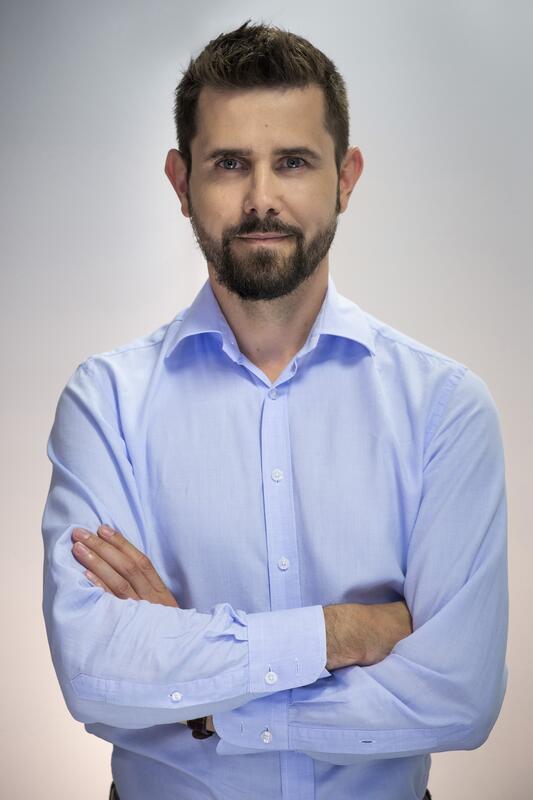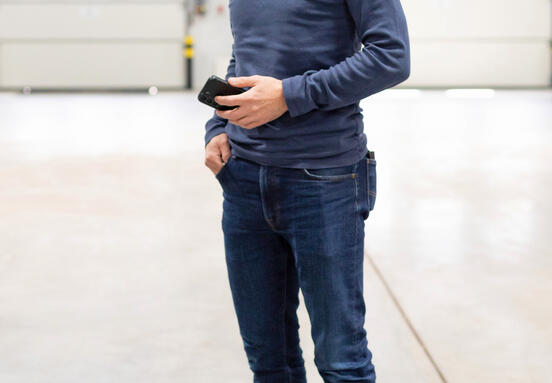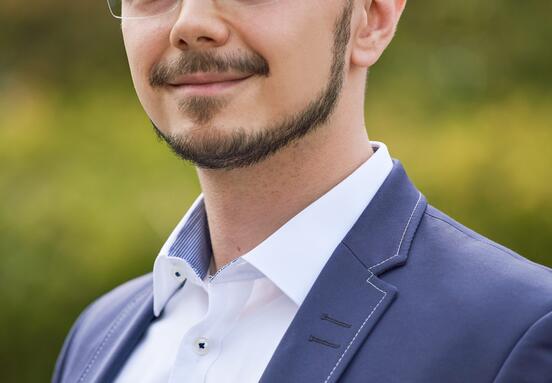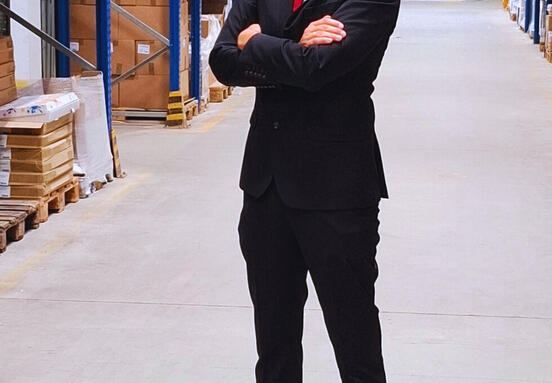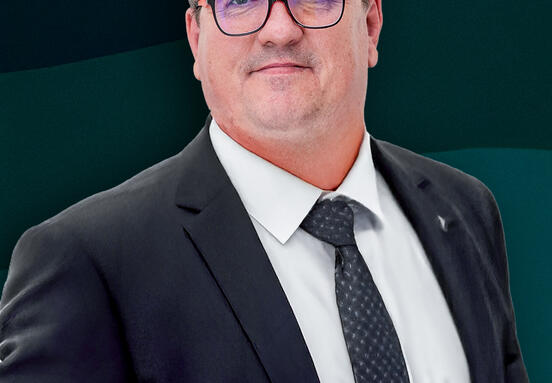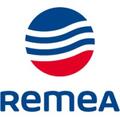KF: What is the importance of geotechnical and environmental studies in the development of new warehouse space? Do you work with warehouse developers?
NK: Geotechnical and environmental surveys, regardless of the type of building, make it possible to obtain basic information with which an informed investor will be able to make a good estimate of the budget and timing of the planned investment. Looking at the areas of warehouse buildings and accompanying infrastructure, as well as their locations, the potential risk of weak soils or chemical contamination in the ground-water medium is very high. The growing awareness of developers as well as experience from Western markets means that we now have more and more developers with whom we cooperate at a very early stage of preparing the investment process
.
KF: What state-of-the-art technologies and research methods do you use in your business? Does technological innovation play a key role in your services?
NK: Several years ago, when we made decisions to develop our remediation business, we set as a primary goal the need to improve the quality of research in the field of identifying ground and groundwater contamination. These decisions resulted directly from what the market was able to offer in terms of environmental research. In order to be able to respond well to the needs of our clients, we first invested in equipment that is standard on Western markets, such as direct-push, and then went through a long process of obtaining accreditation for soil and groundwater sampling. This allows us to obtain reliable qualitative and quantitative information that gives an overall picture of the problem we will face on a given project. Due to the time but also the cost of testing, where quantitative information is obtained after testing samples in accredited laboratories, we have introduced the latest global solutions that are used at the stage of detailing tests, namely environmental probes pressed into the ground directly in the field. These are MIHPT (Membrane Interface Probe with Hydraulic Profiling Tool) and OIHPT (Optical Image Profiler with Hydraulic Profiling Tool) , where we obtain information on volatile organic compounds, hydrocarbons, solvents, soil electrical conductivity or hydraulic conductivity. The great advantages of these methods are the speed of testing, the relatively low cost and the information in the full profile, which eliminates the limitations of classical methods.
KF: What is the process of remediating contaminated sites and how can it affect the safety of future storage facilities and their users?
NK: Remediation consists of reducing the amount of substances that threaten the environment or limiting the spread of these substances in the ground so that the contaminated site does not threaten human health and the environment. When talking about the process of remediation, one should take into account the whole issue from the moment of obtaining information about the problem to the final environmental effect. This can be presented more figuratively as a process starting with historical analyses, field and laboratory studies, pilot tests, preparation of a draft remediation plan, obtaining a remediation decision from the Regional Director of Environmental Protection, through carrying out activities to reduce the amount of substances that threaten the environment or limit the spread of these substances in the ground, to studies verifying the achieved environmental objectives and submission of documentation to the RDOŚ. This entire process must be properly planned before the construction of the facility, so that it runs smoothly without complications and surprises that can affect the cost and time of the entire construction project.
When considering the impact of the presence of contaminants in the ground or groundwater, which very often carry these substances, special attention should be paid to the users of these facilities. Unfortunately, in the case of many chemical compounds, the lack of specialized testing is the inability to determine that these compounds are present at all because, you can't see or smell them. Also, in many cases, exposure to being in contaminated areas does not have an immediate effect, but considering it in the long term means that there is a real danger. Many substances exhibit bioavailability properties, which can be actively or passively taken up by the body, accumulate, undergo transformations the final effect of which will be measurable in the body as various types of biological changes such as cancer. Another element is the issue of the spread of contamination in the ground and water environment and contamination of neighboring land which may result in claims by the owners of these plots.
KF: Are environmental studies already standard in investments, or do you still see gaps in investor awareness of their importance?
NK:Over the last ten years of our activity, we have seen a significant increase in the public's awareness of the issue of pollution, not only of the air but also of the ground and groundwater. There are many investors who take this issue very seriously and already at the stage of purchasing a plot of land conduct a fairly detailed reconnaissance in terms of pollution research, which will ultimately translate into the cost of purchasing a plot of land, the time it takes to obtain the necessary permits, as well as the final cost of remediation. Also on the market we observe extreme behavior where the topic is completely ignored despite the high probability of the presence of contamination, looking at the history of the site. There are also investors who investigate, but unfortunately using low-quality methods, such as taking soil samples obtained by drilling with a spiral auger, the so-called schneck, which results in averaging pollution values and demonstrating the lack of need for remediation activities.
KF:What benefits can be gained by investors opting for comprehensive geotechnical testing and soil remediation before building storage facilities?
NK:Performing good quality geotechnical and environmental studies is first and foremost about obtaining reliable information that will allow you to make informed decisions that enable you to control the investment process in terms of finance and time. It is also information that allows you to eliminate the possible risk of claims by users, new owners at the stage of use of a given facility. We promote the slogan: “Better data better decisions.” Our experience in the market in Poland over the past ten years has repeatedly shown that our clients' savings on geotechnical or environmental studies at the stage of investment preparation required much greater financial and time expenditures at the stage of implementation or use of the facility.
KF: Do you have certifications or accreditations that distinguish you from your competitors and confirm the quality of your services?
NK: As I mentioned earlier, at Remea we focus on quality and safety. We are the only company in Poland that provides a remediation service and we are accredited in water and soil sampling for chemical and physical testing. We have also implemented a quality management system in accordance with ISO 9001:2015 and an environmental management system in accordance with ISO 14001:2015. For the safety of our employees, but also of the subcontractors and clients we work with, we have implemented the ISO 45001:2018 occupational health and safety management system. For more information, please visit: https://www.remea.pl/.
Dr.-Ing. Norbert Kurek, Member of the Management Board / CEO
Norbert Kurek is a graduate of Gdansk University of Technology, where he graduated in construction with a specialization in geotechnics. He also earned a doctorate in technical sciences in the field of construction. He did his master's internship at Joseph Fourier University in Grenoble, France. He completed postgraduate studies in project management at the Warsaw School of Economics and special studies in “Geotechnics and Environmental Engineering” at Gdansk University of Technology. He is also a graduate of the MBA program at the Warsaw School of Economics.
He started his professional work in 2004 as a member of Prof. Zbigniew Sikora's team. From 2006, he worked at Soletanche Poland as a construction engineer and then as a works manager in the execution department. Since 2009, he headed the soil strengthening department, building the company's strategy in this area and its market position. In 2011, he joined Menard Polska, where he took the position of Deputy General Manager and Director of the Center Branch. Since 2016, by a decision of the Board of Directors, he was appointed as a proxy at Menard Polska. In addition, since 2019. Norbert Kurek is the General Director of REMEA.
Norbert Kurek is an expert with more than 15 years of experience in geotechnics. He has participated in the development of many projects. The team of REMEA specialists under his leadership has carried out thousands of investigations throughout Poland and many successful remediations. Examples of such projects include the revitalization of the area after the former Orzegów Coke Plant in Ruda Śląska, remediation work on the site of the former Zakłady Chemiczne “Zachem” S.A. in Bydgoszcz, or innovative work on the Kalina pond in Świętochłowice. His activities have also resulted in 25 scientific and technical publications in domestic and foreign journals, of which he is the author or co-author.
